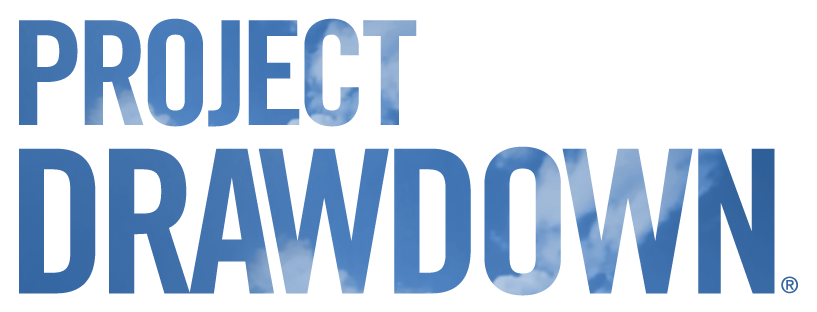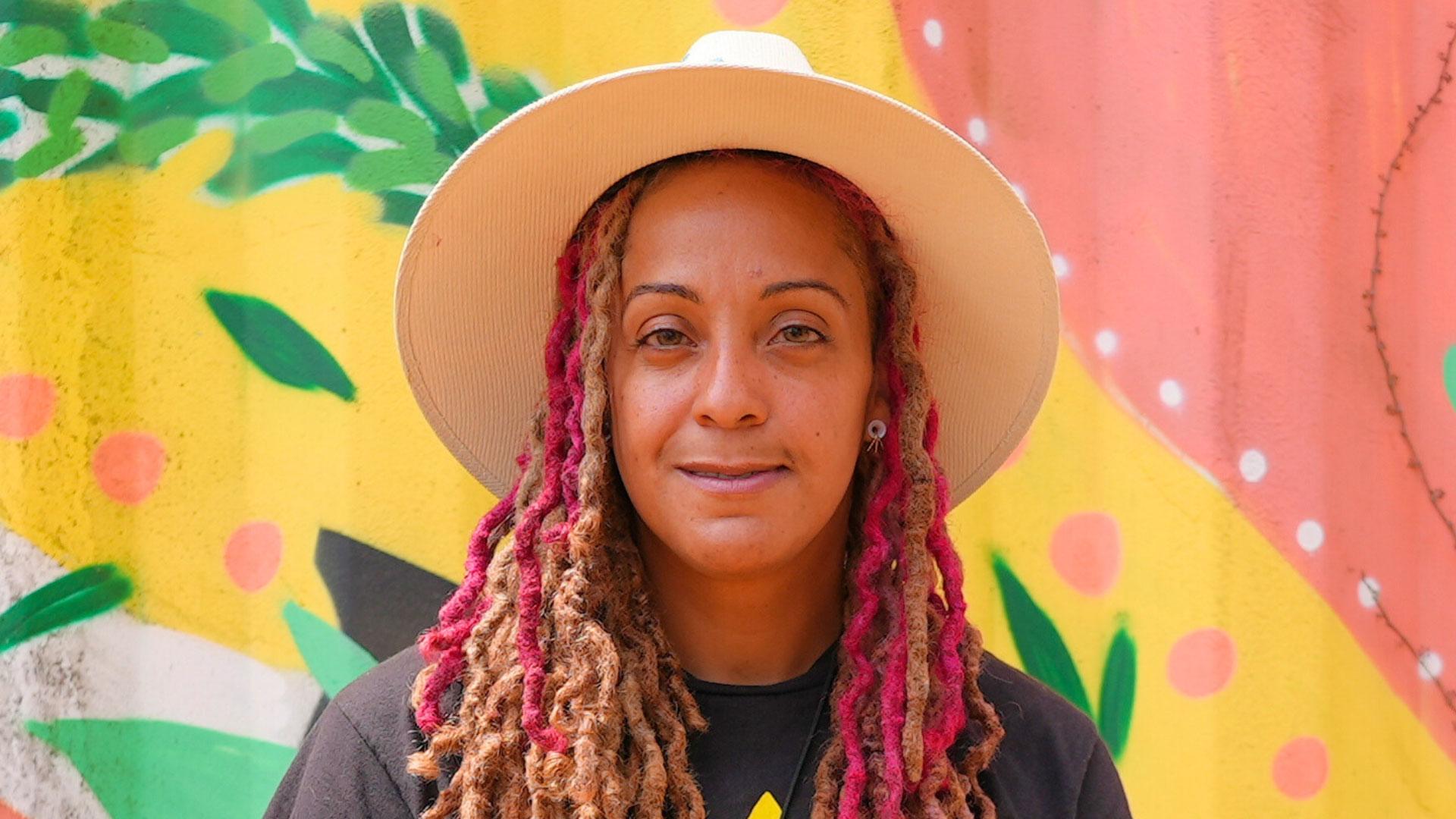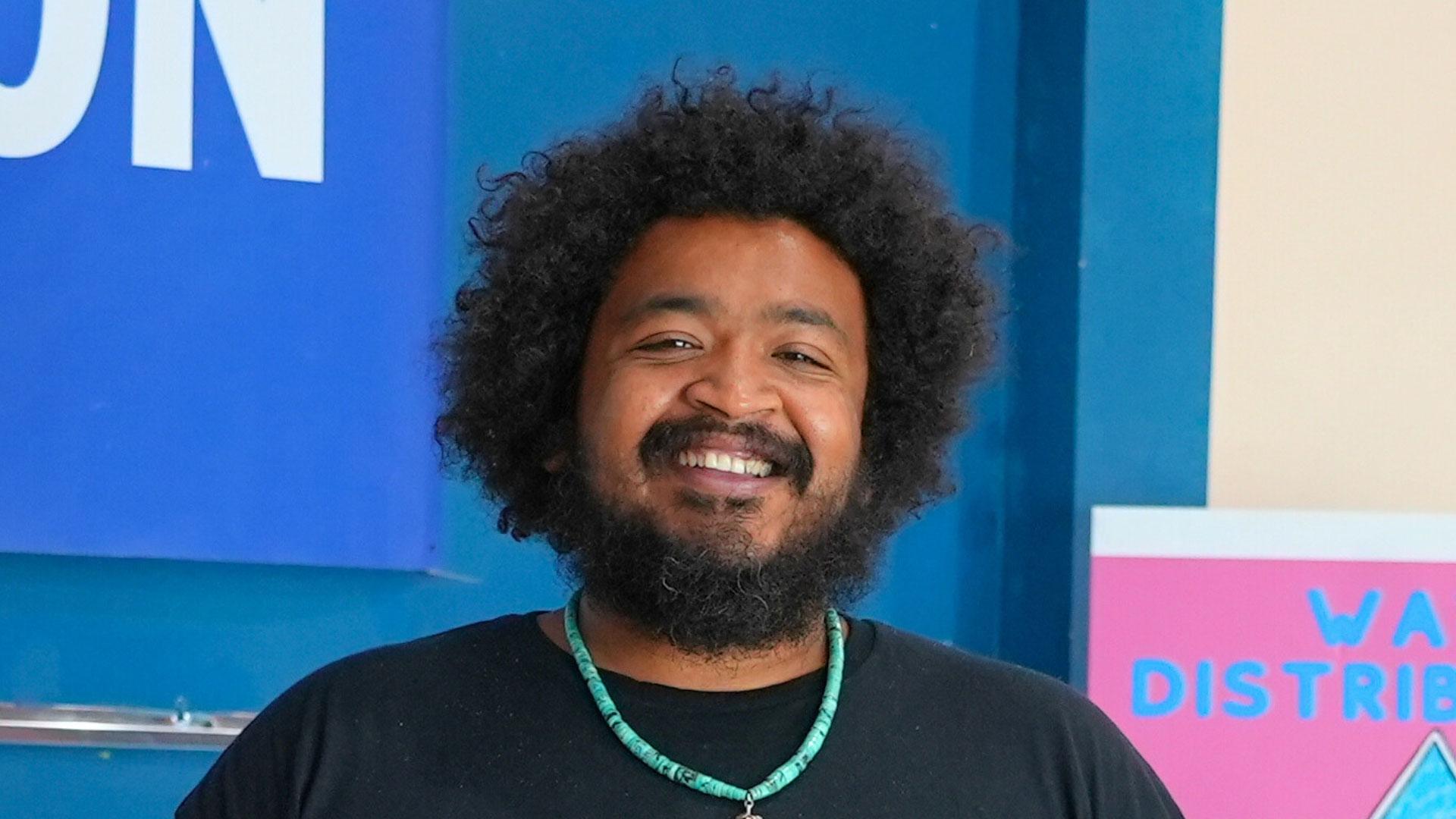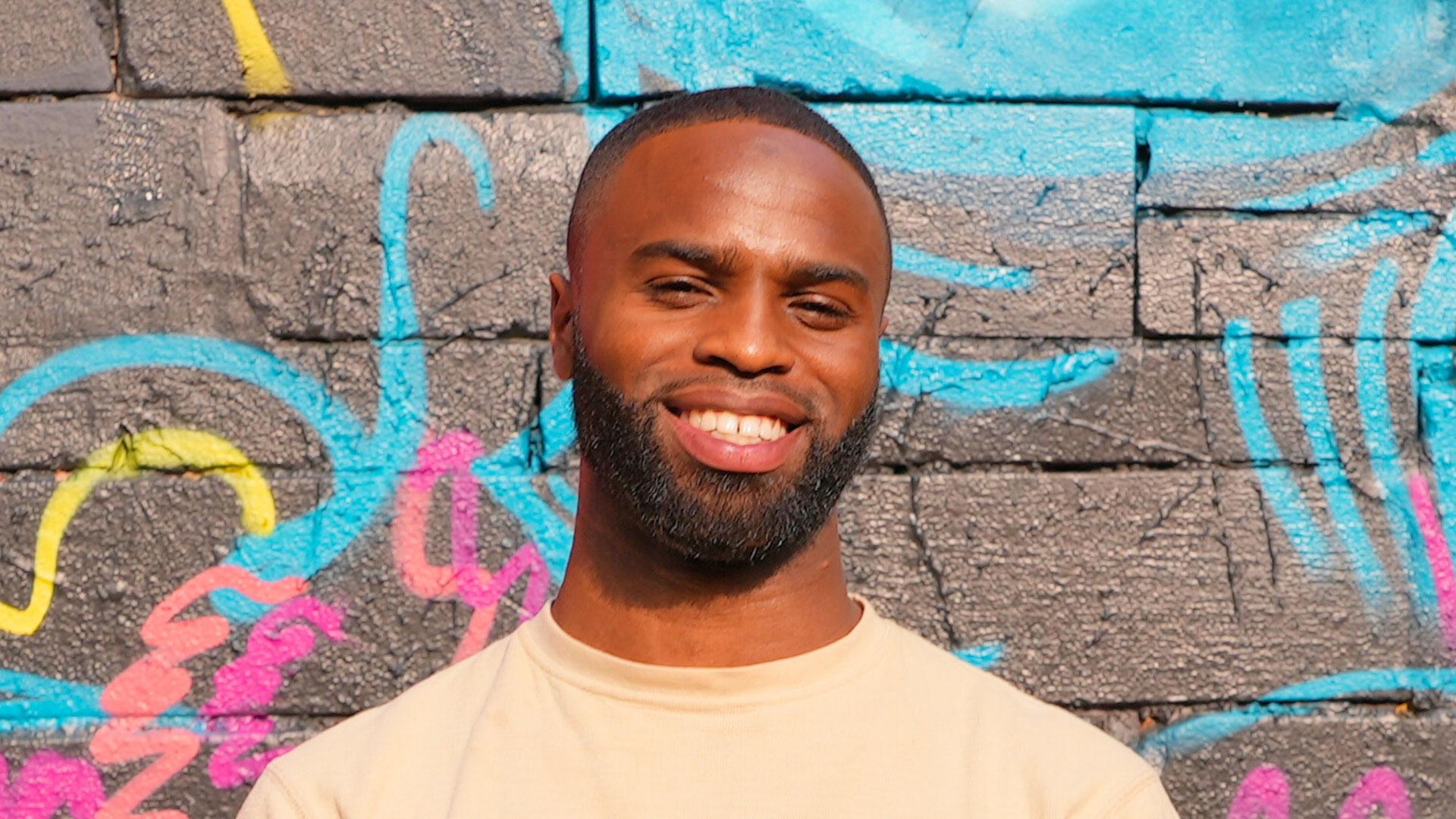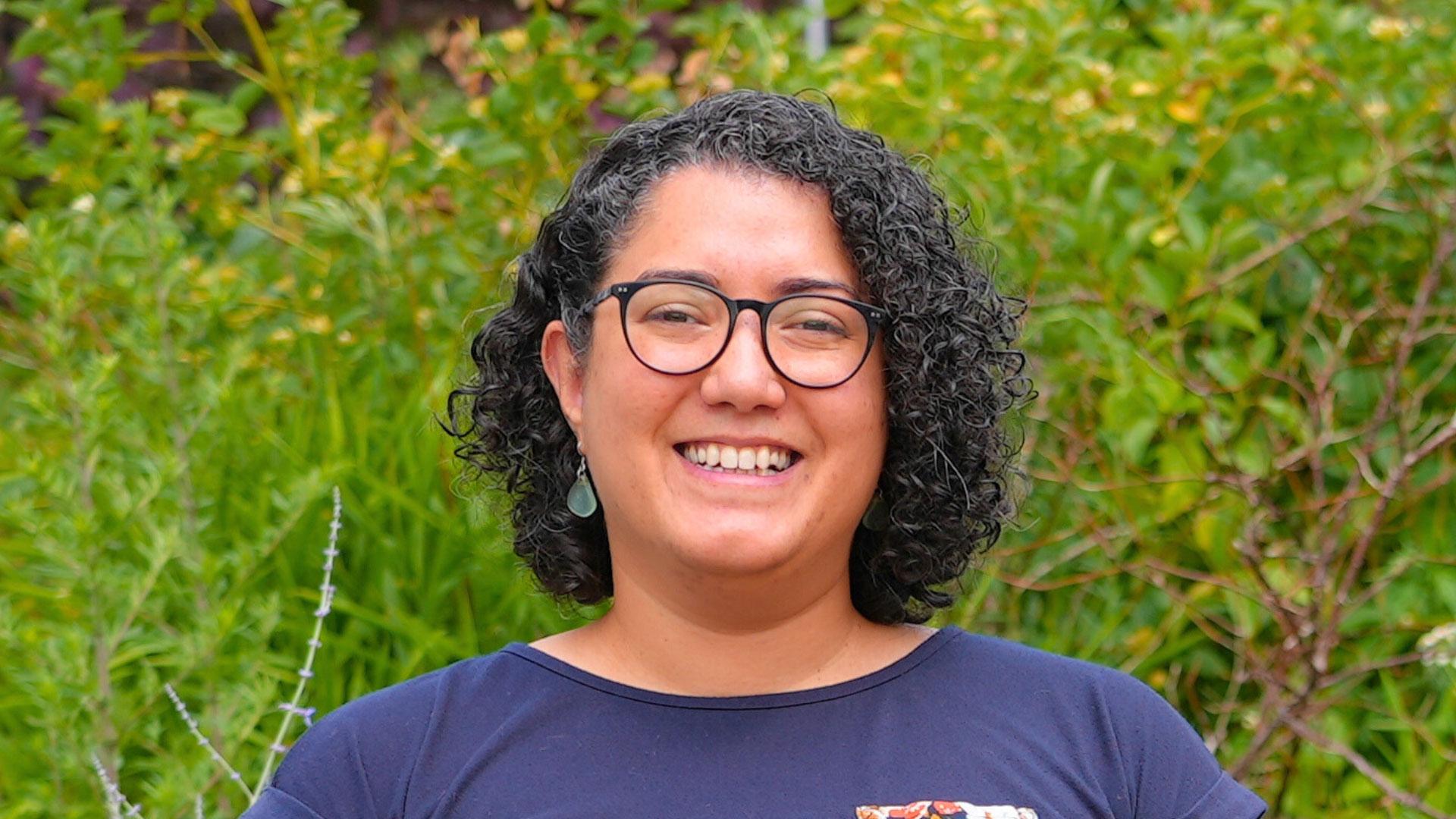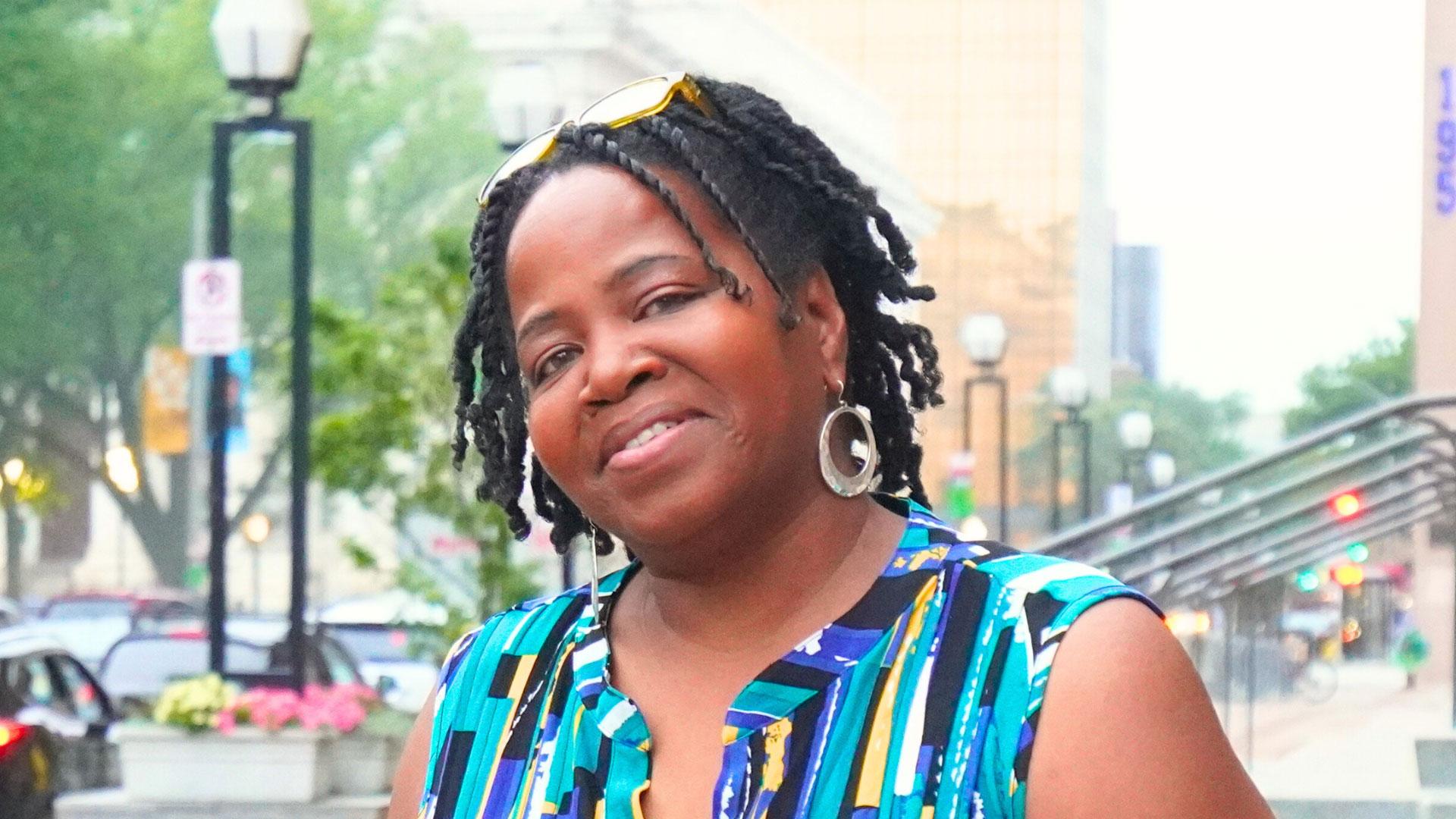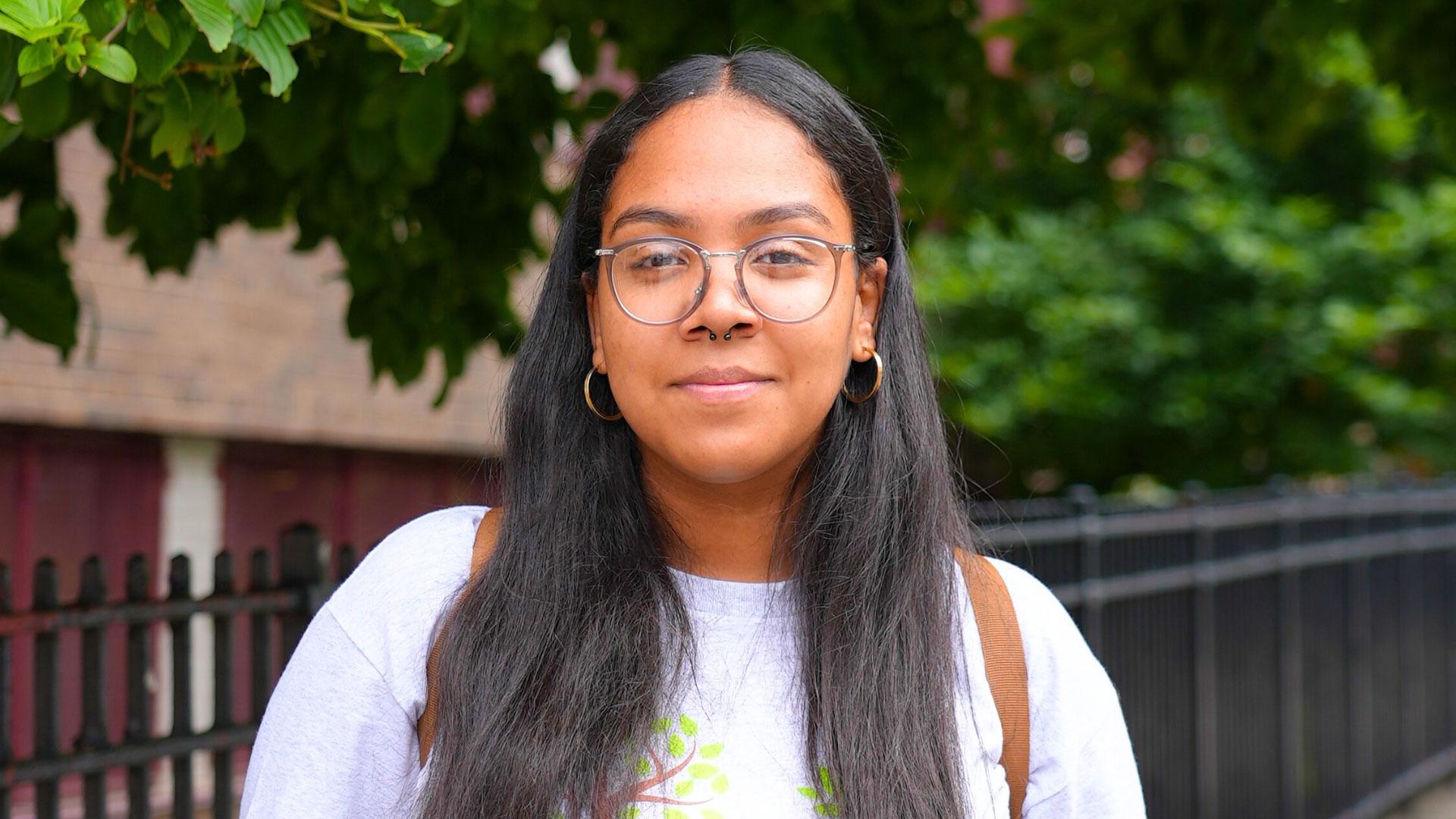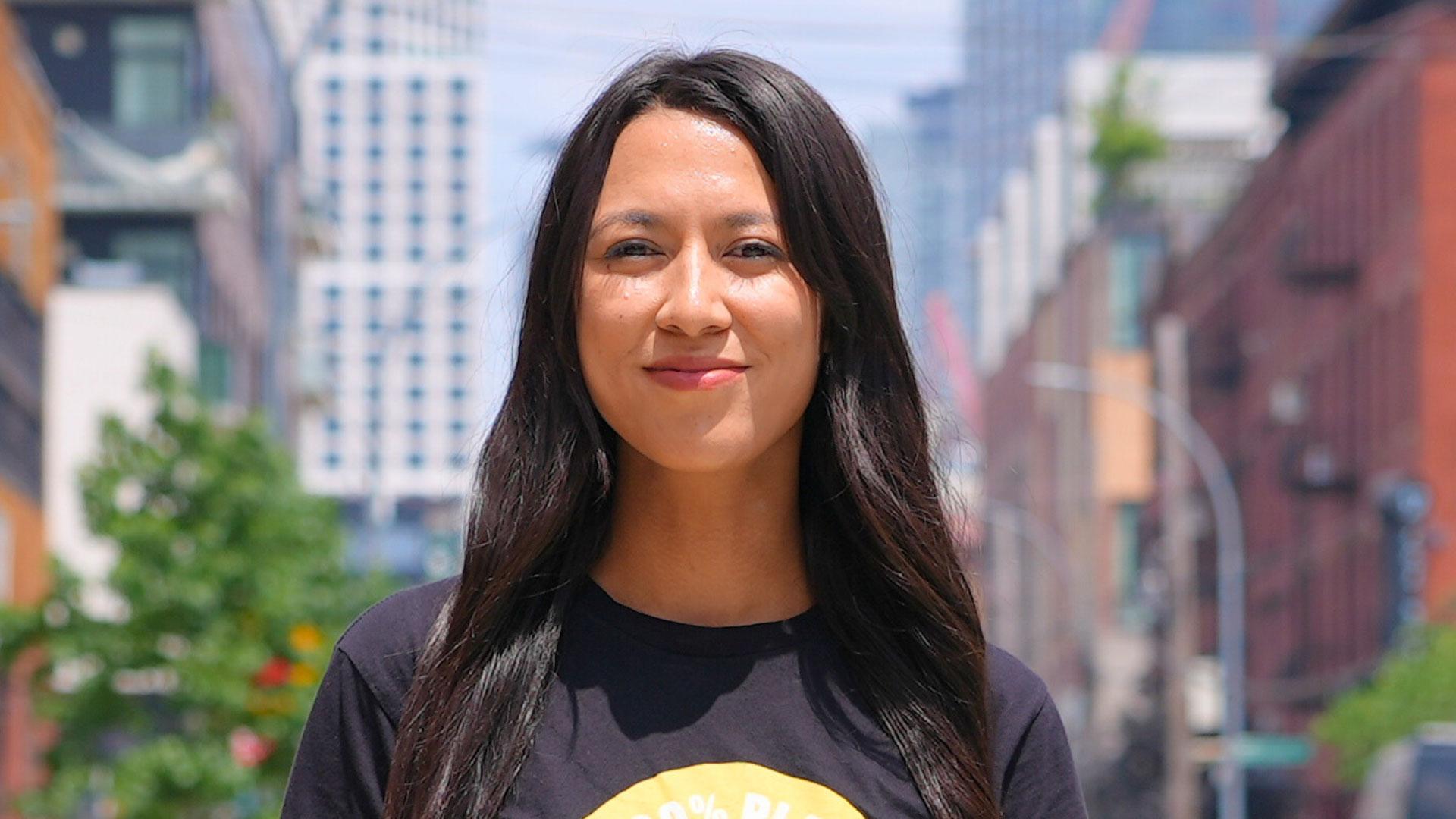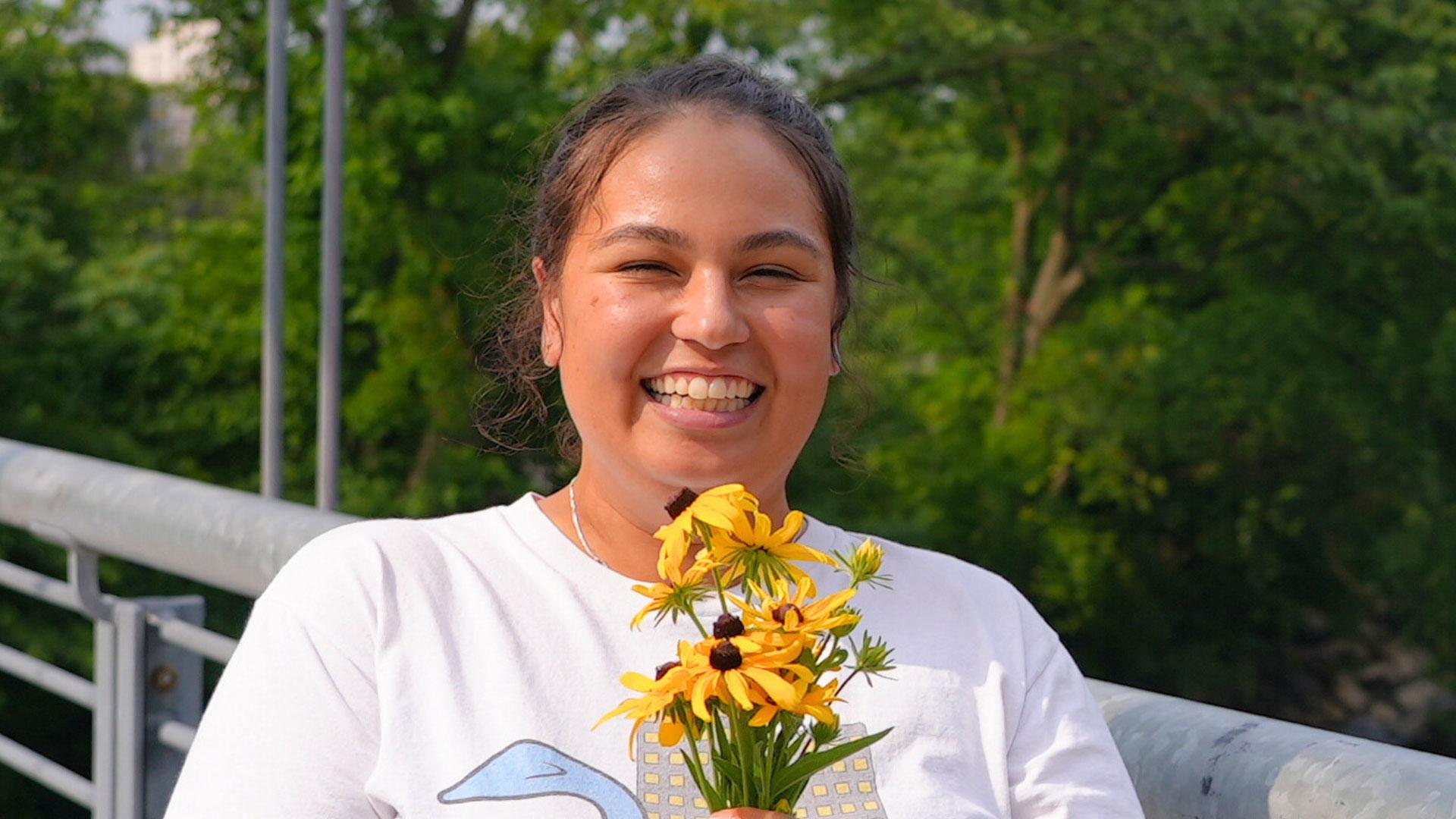Xóchítl Garcia: Indigenous Climate Leadership in Connecticut
In this Episode
Xóchitl’s Story
It is essential to make the representation of culture, identity, and language visible in how we teach and talk about climate change, including Indigenous cultures which are deeply connected to and have stewarded the land for many generations. Xóchitl Garcia is an Indigenous-Chicana leader and community activist working in the New Haven area, teaching people about climate change through an Indigenous lens and creating equitable spaces and opportunities for communities of color in the environmental and agricultural sectors. Xóchitl educates and engages youth and community members about structural and systemic injustice through cultural ways, such as Indigenous cooking, environmental justice poetry, summer camp programming around climate justice, and a traditional ecological knowledge workshop for high schoolers. Xótchitl says, “a lot of the things of the environment are rooted in Indigenous knowledge…Indigenous people are seen as ancient or in the past, but these things are still actively being practiced...unique historical knowledge…things that you will most likely never see in a book.” Indigenous ways of knowing go beyond Western science and help people see how their identity can be a superpower for climate solutions and leadership.
Discussion Questions
One of the most important things you can do regarding climate change is talk about it.
- Xóchitl shares that the meaning of her name in Nahuatl means “flower” and says that is an accurate representation of her lifestyle "...because as a flower we are constantly growing, and going through different seasons and it is something very malleable and flexible, just like nature." What is your full name? Does it have a special meaning or a story behind it? If so, does that represent an aspect of who you are or your values?
- Xóchitl grew up in an area outside of New Haven which has experienced the generational trauma and consequences of “white flight,” the phenomenon of white people moving out of urban areas, particularly those with significant minority populations, into suburbs resulting in disinvestment, reduced property values, and lack of economic opportunities for the urban neighborhood. Understanding the systemic injustice that “white flight” has caused and how it has contributed to poverty in her community, Xóchitl became motivated to change these systems and advocate for equity and climate justice. What are the links between climate change and poverty? How might solutions at these intersections bring positive changes that address multiple issues facing our communities?
- Xóchitl calls herself an “urban farmer in hibernation” because of her Indigenous roots. On the farm she says it is important to have a space just for resting, to create the “intention to let our body regenerate.” Xótchil has realized that “...some of the most impactful, spontaneous conversations happen because we were just resting in the shade or drinking water from the hose, doing something human.” Looking back on your experiences, can you identify a conversation with someone that impacted you? Who was it with, what was the setting, and what were you doing that created the space for that conversation to happen? How might embracing more rest inspire meaningful reflection and connection to others?
- In her journey, Xótchil says it was necessary to surround herself with people who encouraged her leadership. “I’ve immersed myself with a lot of Latinx women, who are practically invisible in the spaces that I actively work in. So, they’re the reason why I am here today in terms of my profession because they kept putting my name out there to other communities, they kept providing me [with] opportunities…They’ve also given me so much insightful perspective on what it is to be a Latinx woman of Indigenous origin... They were the first women who saw my potential when I felt so small,” she says. Is there someone in your path who you have felt encouragement from? If so, who is that person, and in what ways have they inspired you to see yourself in a new light?
Learn More
Learn about the solutions in this story.
- Sector: Buildings; Coastal and Ocean Sinks; Food, Agriculture, and Land Use
- Climate Solutions Cluster: Enhance Efficiency; Protect and Restore Ecosystems
- For more on all of Project Drawdown’s climate solutions, visit drawdown.org/solutions
- Learn more about Xóchitl’s work at Save the Sound
Explore Climate Solutions 101, the world's first major educational effort focused solely on climate solutions. This video series combines Project Drawdown’s trusted resources with the expertise of inspiring, scientifically knowledgeable voices from around the world: drawdown.org/climate-solutions-101.
Check out the Drawdown Roadmap, a science-based strategy for accelerating climate solutions that ensures efforts to stop climate change by governments, businesses, investors, philanthropists, community organizations, and others are as impactful as possible.
Visit the Yale Program on Climate Change Communication, a resource that shares research, communications strategy, and opinion polling on climate communications.
Take Action
- Subscribe to the Project Drawdown newsletter to receive biweekly insights and inspiration to guide your own climate solutions journey.
- Drawdown Ecochallenge, presented by Ecochallenge.org, is a fun and social way to take measurable action on the top climate solutions. Take the challenge, and see how a few weeks of action add up to a lifetime of change for you and the planet. If you want to take action on climate solutions like Xóchitl, start a challenge today.
- The Drawdown Labs Job Function Action Guides are practical resources that highlight specific, high-impact climate actions employees in common corporate professions can take at work.
- ChangeX connects people with proven ideas for strengthening communities with the resources needed to implement those changes. Explore countless ways to improve your community and help the world reach drawdown.
- Climate Generation's Green Careers for a Changing Climate Instructional Supplement (for Grades 6-8) contains resources to help young people learn about Green STEM Careers—paths that use STEM skills to help reduce the impacts of climate change. Throughout this instructional supplement, students use Project Drawdown resources to make important connections between climate solutions and different careers.
- Solutions Journalism Network highlights the importance of reporting stories of climate solutions in the media to create a more equitable and sustainable world. Visit their Teaching Climate Solutions resource to find curated collections and the latest examples of climate solutions journalism.
- SubjectToClimate (StC) is a nonprofit online connector for K-12 leaders of all subjects to find materials on climate change at no cost. Explore StC’s educator-generated database to connect to Project Drawdown-based climate education resources.
Sign up to receive updates, provide ideas, and tell us how you might share Drawdown’s Neighborhood in your community.
